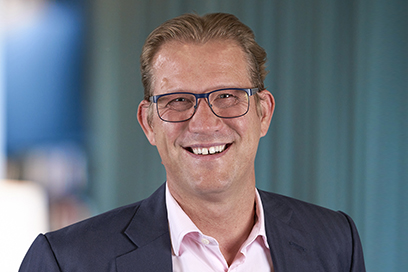Berkeley partner Richard Marsden attended COP26 and witnessed the progress companies have made on sustainability. He shares his views following the conference, looking beyond target-setting to the challenge of delivering real climate action.
Proactive ambitions – how companies have taken the lead on sustainability
Diplomatic negotiations had to enter ‘extra time’ at COP26 before countries were able to agree to new measures to cut carbon emissions. This is no surprise; tackling climate change is complex and challenging. While the scale of the problem is apparent, and we all know serious action is needed, it hasn’t been easy to commit to solutions.
Despite this, I left COP26 feeling encouraged, having seen the initiative taken by many companies to become more sustainable. Rather than ignoring the issue until legislative mandates force them into action, many businesses have recognized the role they need to play. They’re proactively setting their own ambitious targets to reach net zero emissions by 2050, such as transitioning to renewable energy or sourcing more eco-friendly raw materials, as well as other sustainability goals like zero waste or water stewardship.
It was inspiring to meet many of these companies at COP26, to hear about the scale of their ambition, and to see them taking sustainability seriously.
Good for business, not just for CSR
These conversations also made apparent that such initiatives go beyond mere corporate social responsibility.
Undoubtedly, taking action on sustainability is the right thing for companies to do. But it’s fundamentally also good business sense. More and more companies understand that they will have no commercial future if they don’t put sustainability at the heart of their strategy and operations.”
Both internal and external stakeholders, from consumers and business customers to employees, are putting the pressure on companies to be more sustainable. Environmental, social, and governance (ESG) factors are becoming increasingly important to investors.
The most innovative businesses will go beyond meeting this demand. There will be opportunities to develop new products and services, and working methods that won’t just be better for our climate and the environment, but will be profitable too. It will lead to better growth and new job opportunities – a true win-win scenario.
Delivering sustainability means effective partnerships
Setting targets is relatively easy compared to the challenge of delivery. In this next phase, businesses won’t be able to act alone. Organizations will need to partner effectively with others if they are to drive real change.
There is an entire complex decarbonization ecosystem that companies must learn to navigate. This stretches from accessing appropriate finance, to selecting the right suppliers, to working in partnership with non-government organizations.
Berkeley is proud to be partnering with our clients, working with them to plan and mobilize their sustainability programs. For example, in the transport sector we have supported clients to understand the decarbonization challenge, define their strategy and plan for action.
Through our client work, we have been talking to all manner of organizations across this complex landscape. Having built these great relationships and deepened our network, we’ll be able to support clients on future partnerships as their programs evolve, making the right choices that will lead to lasting outcomes.
At Berkeley, we ourselves are benefitting from these partnership connections. As we continue on our own net zero journey and make progress on our workstreams, we are actively considering where partnerships will help us make a better impact.
Partnering to achieve real sustainability outcomes
By hosting COP26 in Glasgow, the UK put itself under a global spotlight, telling the world it was both leading and committing to real impact. The country will now have to make an actionable plan to deliver on its climate pledges.
Likewise, businesses who have taken the lead and set their own targets need to get their programs moving. They have the strategic ambition, but they need to translate this into realistic actions that ultimately lead to the desired outcomes.”
It won’t be easy. This is a challenge that the business will never have faced before. Delivering results will require focus, co-ordination and imagination.
The challenge is too great for businesses to tackle on their own. By building the right strategic partnerships, organizations will ensure they are taking climate action in a holistic, joined-up way – and reach their goals. I’m confident we can bridge the gap between ambition and delivery. It starts with working together.







